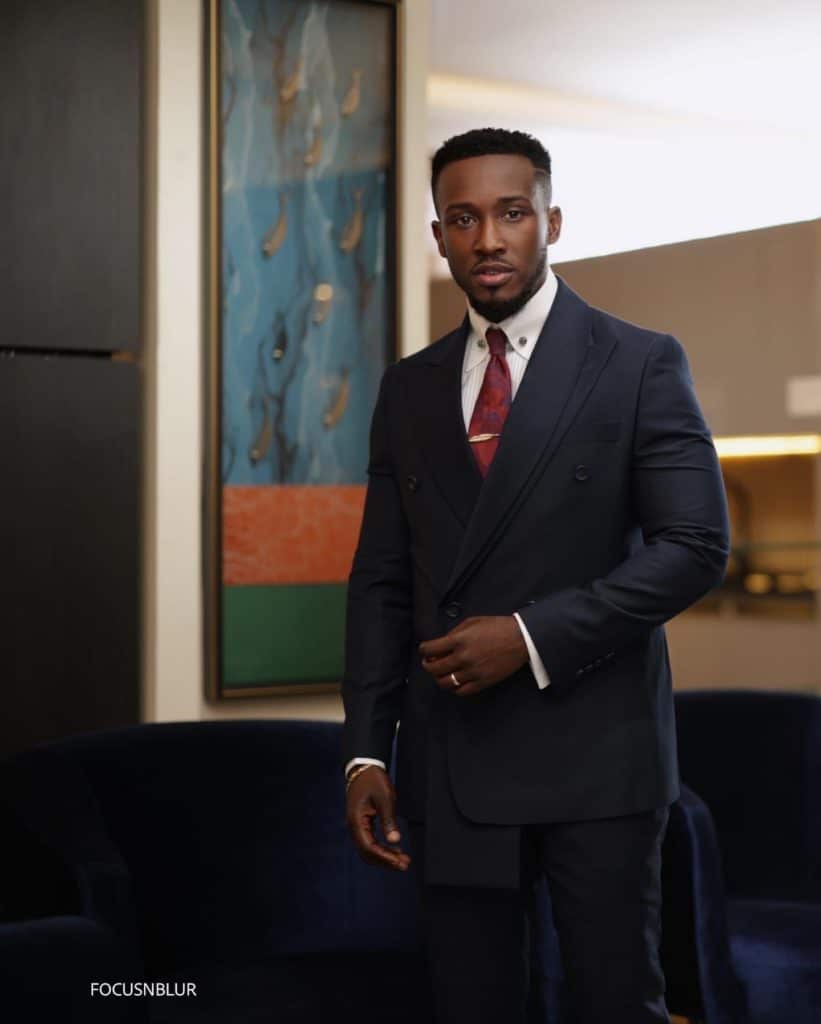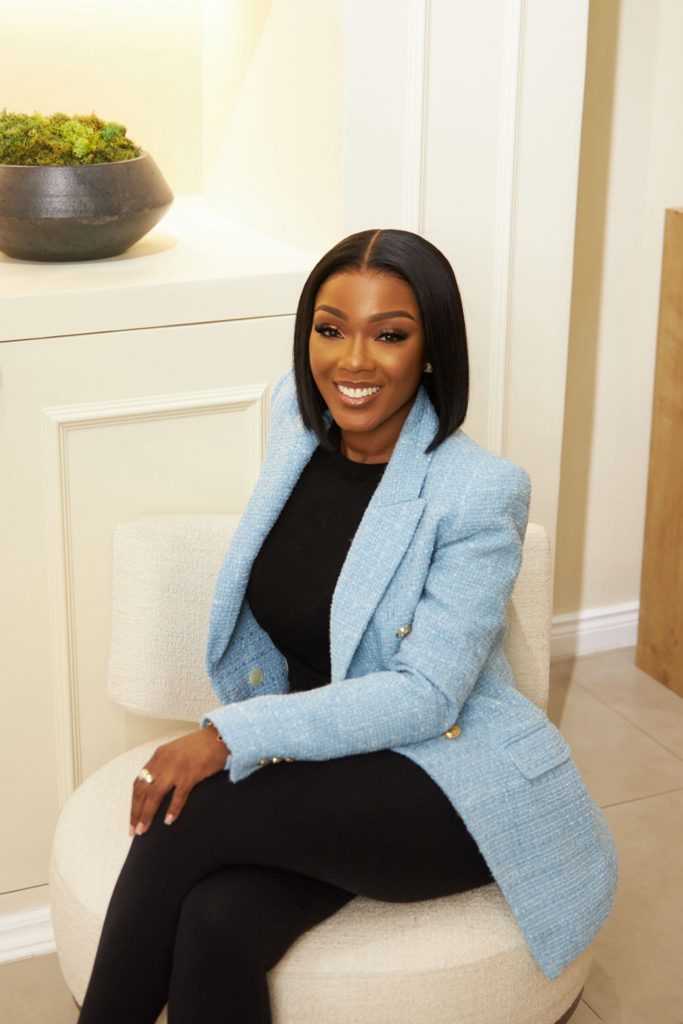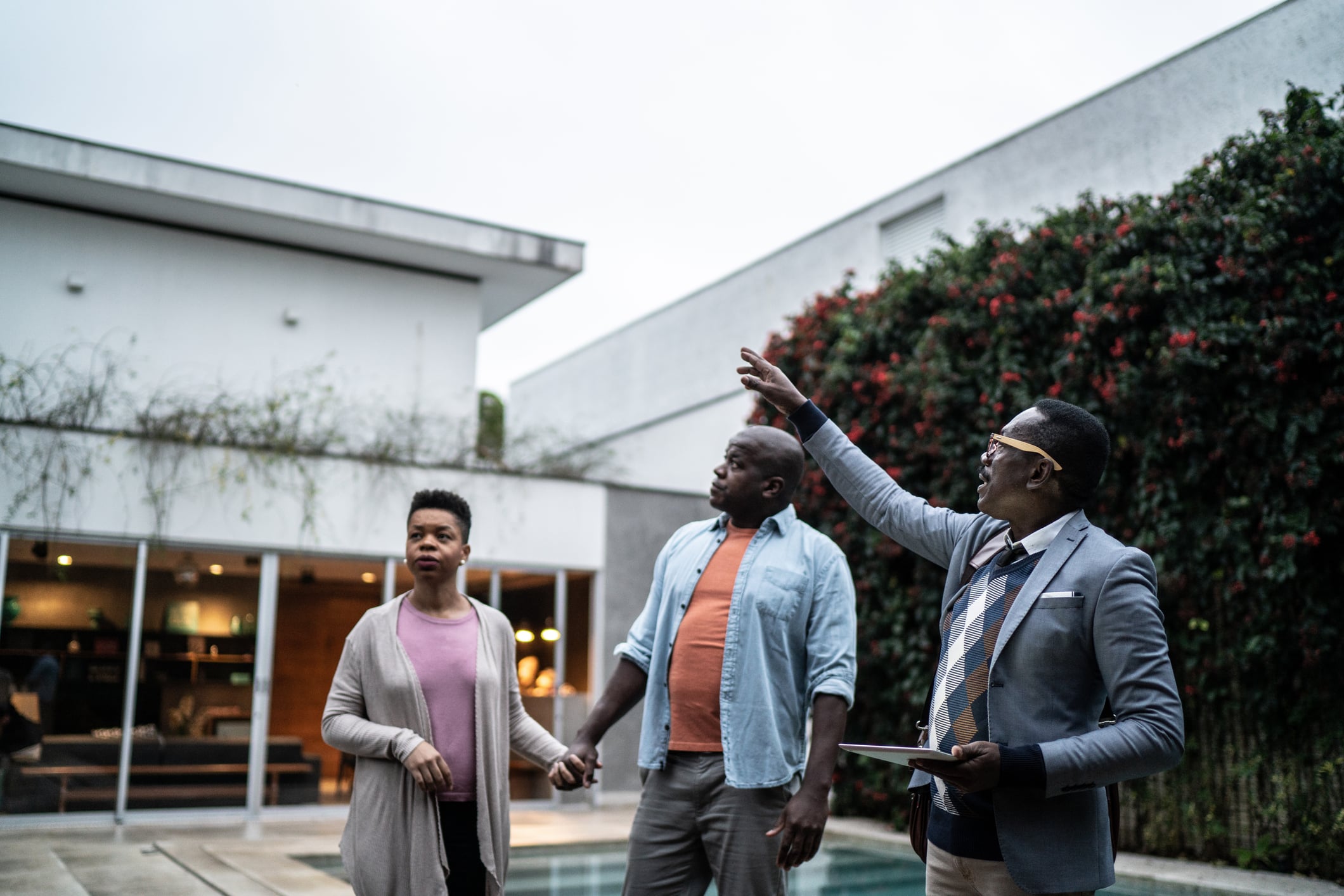As Ghana’s home market picks up, so is the demand from consumers for opulent interiors, but there are challenges.
The interior design market size was valued at $130.5 billion in 2022 and is expected to grow to $211.29 billion by 2032, according to global market research company, Market Research Future. In Ghana, in particular, Statista reports that revenue in the furniture market is estimated to be $431.30 million in 2024, and projected to experience an annual growth rate of 2.04% (CAGR 2024-2029).

“Ghana is currently at an exciting juncture. We are seeing new design concepts come to the forefront. There is a growing recognition of intrinsic elements, such as superior craftsmanship and exceptional materials,” says Pamela Michelle Aboagye, founder of Ms. Atkinson Interiors.
“I feel Ghana could be the leading luxury interior landmark. We have the resources, talent and craftsmanship to exceed all other countries. We are gradually being acknowledged and appreciated for our design ability.”
Mawuli Nii Mensah, CEO of Tema-based FBM Marble & Granite that provides natural stone products, further attests to this.
Loading...
“Our typical clientele encompasses a diverse range of individuals who share an appreciation for the transformative power of a beautifully designed home. Contrary to the perception that interior design is just for the affluent, everyone deserves a living space that is both opulent and reflects their style,” he says.
“While my portfolio includes clients with notable budgets, which grants me the freedom to prepare designs without constraints, my core philosophy is that beautiful homes should be accessible to everyone.”
The sector can also be considered crucial because, in many cases, it helps to increase the value of real estate. This, in turn, would have a knock-on effect on sectors like the furniture market.
A 2022 report from the Ghana Investment Promotion Centre (GIPC) states that the country’s real estate sector had become the fastest-growing sector with a compounded annual growth rate (CAGR) of 30% between 2016 and 2021. The development of residential spaces has been bolstered by both the government and the private sector, having increased to 5.86 million structures in 2021.
The luxury space in Ghana is also brimming with opportunities and Yaw Appiah Kubi, designer and creator of Yak Group, has taken full advantage of this.
“I have worked on several high-end projects including, Ridge Condos, Teflon Suites, Gyamfuaa Courts in the Ashanti Region, in addition to the resplendent Makers House Chapel, Embassy Gardens, Airport Hills, Lakeside Estate, Chain Homes, and many more luxurious apartments in Accra. Luxury consumers appreciate made-to-order experiences and exclusivity. Offering tailored services, limited editions, and immersive retail experiences can create a strong brand connection and customer fidelity,” he says.
Yak Decor, one of the portfolios in his group, is a luxury home interior design company in Ghana. With a 10-year journey in the dynamic world of interior design, Kubi prides himself on being a creator of bespoke furniture and a curator of luxurious interior and exterior furnishings.

However, as attractive as real estate – and supporting sectors – is in Ghana, the current economic climate still presents challenges for businesses in the industry.
“The last few years’ recession has impacted every known industry and the interior design industry is without exception. Many projects have been put on hold, and the profitability and sales of many interior design businesses are going south,” says Kubi.
He has seen a decline of about 30% to 50% in revenues due to decreased consumer spending on non-essential items such as home furnishings and decor.
“I was also faced with increased competition from other similar businesses as they offered lower-priced goods and services to stay afloat in the market. This, again, has caused a dent in profit margins as I was compelled to compromise on our prices as well,” says Kubi.
Aboagye, of Ms. Atkinson Interiors, is, on the contrary, seeing a slightly different trend from Kubi.
“We have seen a 20% growth rate month-on-month in Q1, showing an understanding that, despite financial difficulties, people are choosing to invest in themselves and their homes. Some clients are conscious of their spending. I think that the goal should be to cater to everyone and educate our clients on the value of what we offer,” she says.
“With luxury interiors, the beauty lies in the durability and quality of our products. Everything is made to last, which means that while clients might feel like they are spending more, especially during an economic crisis, we are actually helping them make long-term investments in their homes.”
For Kubi, the current state of the economy as well as the increasing competition has led to a shift in strategy.
“In our recent board meeting, we concluded that we needed to find real estate investors, like developers who are planning long-term projects, because getting hired for these projects can fill in the gaps in our pipeline,” he says.
Aboagye has taken a different approach to protect her business and guarantee growth in these uncertain times.
“Businesses like mine require collaborations with other professionals, like architects and developers. Clients should allow interior designers to be involved from the early stages. Additionally, collaborating with personal shoppers and fashion stylists will help bring all design elements together. The public should also be educated on what interior designers offer,” says Aboagye.
For those looking to break into and thrive in the luxury interior design sector, she believes that ‘stickability’ is key for long-term growth.
“I think that we will continue to trend upward throughout 2024. Government-endorsed legislations like The Year of Return [in 2019] encouraged the diaspora community to return. We are continuing to see an upsurge in foreign investment and a demand for properties to meet a certain level of standards. There is a spotlight on Africa, and with this, I hope that we can see a boost in our economy and the opportunity for our people to spend and elevate our lifestyles,” says Aboagye.
Despite the increase in residential structures in the last decade, Ghana’s housing deficit is still around 1.8 million, according to the GIPC. The Ministry of Finance estimates that about 60% of Ghana’s urban population needs assistance in securing adequate homes.
However, this does present untapped opportunities for real estate entrepreneurs like Kofi Anku, who leads Pokuase Heights, a sustainably-built middle income housing development in Accra.
“We have over 200-unit townhouses which feature solar power, insulated walls and ceilings, biodigesters and water supply. Our two bed bungalows start from $42,000 whiles the three-bedroom shell homes go for $72,000. If you contrast this with the average home in the United States, which is $435,000 or the United Kingdom, which is $375,000, you realize just how much value you get with our homes,” says Anku.
Loading...
